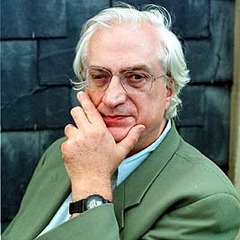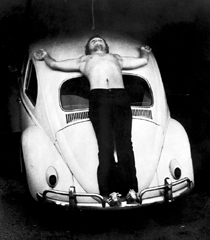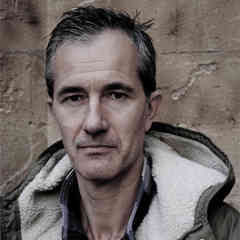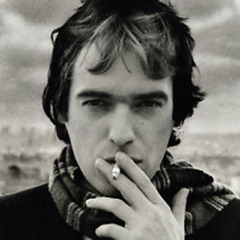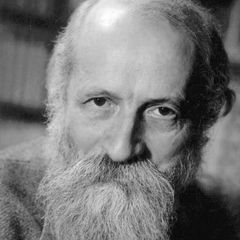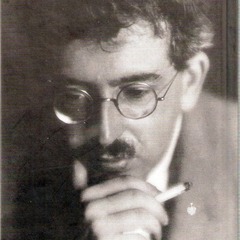John Berger quotes
-
“The relation between what we see and what we know is never settled. Each evening we see the sun set. We know that the earth is turning away from it. Yet the knowledge, the explanation, never quite fits the sight.”
-- John BergerSource : "Ways of Seeing". Book by John Berger, 1972.
-
“You painted a naked woman because you enjoyed looking at her, put a mirror in her hand and you called the painting “Vanity,†thus morally condemning the woman whose nakedness you had depicted for you own pleasure.”
-- John Berger -
“To be desired is perhaps the closest anybody in this life can reach to feeling immortal.”
-- John Berger -
“The poverty of our century is unlike that of any other. It is not, as poverty was before, the result of natural scarcity, but of a set of priorities imposed upon the rest of the world by the rich.”
-- John BergerSource : John Berger (2011). “Keeping a Rendezvous”, p.234, Vintage
-
-
“All weddings are similar, but every marriage is different.”
-- John Berger -
“Every city has a sex and an age which have nothing to do with demography. Rome is feminine. So is Odessa. London is a teenager, an urchin, and, in this, hasn't changed since the time of Dickens. Paris, I believe, is a man in his twenties in love with an older woman.”
-- John BergerSource : John Berger (2011). “Keeping a Rendezvous”, p.101, Vintage
-
“Men look at women. Women watch themselves being looked at.”
-- John Berger -
“As Nelson Mandela has pointed out, boycott is not a principle, it is a tactic depending upon circumstances. A tactic which allows people, as distinct from their elected but often craven governments, to apply a certain pressure on those wielding power in what they, the boycotters, consider to be an unjust or immoral way.”
-- John Berger -
-
“We who draw do so not only to make something observed visible to others, but also to accompany something invisible to its incalculable destination”
-- John BergerSource : John Berger (2011). “Bento's Sketchbook”, p.10, Pantheon
-
“What do drawings mean to me? I really don't know. The activity absorbs me. I forget everything else in a way that I don't think happens with any other activity.”
-- John Berger -
“Autobiography begins with a sense of being alone. It is an orphan form.”
-- John Berger -
“I can't tell you what art does and how it does it, but I know that often art has judged the judges, pleaded revenge to the innocent and shown to the future what the past suffered, so that it has never been forgotten. Art, when it functions like this, becomes a meeting-place of the invisible, the irreducible, the enduring, guts, and honor.”
-- John BergerSource : John Berger (2011). “Keeping a Rendezvous”, p.9, Vintage
-
-
“What makes photography a strange invention is that its primary raw materials are light and time.”
-- John BergerSource : John Berger, Jean Mohr (2016). “Another Way of Telling: A Possible Theory of Photography”, p.75, Bloomsbury Publishing
-
“Unlike any other visual image, a photograph is not a rendering, an imitation or an interpretation of its subject, but actually a trace of it. No painting or drawing, however naturalist, belongs to its subject in the way that a photograph does.”
-- John Berger -
“Compassion has no place in the natural order of the world which operates on the basis of necessity. Compassion opposes this order and is therefore best thought of as being in some way supernatural.”
-- John Berger -
“Publicity is the life of this culture - in so far as without publicity capitalism could not survive - and at the same time publicity is its dream.”
-- John Berger -
-
“Nakedness reveals itself. Nudity is placed on display. The nude is condemned to never being naked. Nudity is a form of dress.”
-- John BergerSource : "Ways of Seeing". Book by John Berger, 1972.
-
“Emigration, forced or chosen, across national frontiers or from village to metropolis, is the quintessential experience of our time.”
-- John Berger -
“When we read a story, we inhabit it. The covers of the book are like a roof and four walls. What is to happen next will take place within the four walls of the story. And this is possible because the story's voice makes everything its own.”
-- John BergerSource : John Berger (2011). “Keeping a Rendezvous”, p.15, Vintage
-
“To be naked is to be oneself. To be nude is to be seen naked by others and yet not recognised for oneself.”
-- John Berger -
-
“When we read a story, we inhabit it. The covers of the book are like a roof and four walls.”
-- John Berger -
“The human imagination... has great difficulty in living strictly within the confines of a materialist practice or philosophy. It dreams, like a dog in its basket, of hares in the open.”
-- John Berger -
“A peasant becomes fond of his pig and is glad to salt away its pork. What is significant, and is so difficult for the urban stranger to understand, is that the two statements are connected by an and not by a but.”
-- John Berger -
“That we find a crystal or a poppy beautiful means that we are less alone, that we are more deeply inserted into existence than the course of a single life would lead us to believe.”
-- John BergerSource : John Berger (2008). “Selected Essays of John Berger”, p.569, Vintage
-
-
“We never look at just one thing; we are always looking at the relation between things and ourselves.”
-- John Berger -
“The past is the one thing we are not prisoners of. We can do with the past exactly what we wish. What we can't do is to change its consequences.”
-- John Berger -
“All photographs are there to remind us of what we forget. In this - as in other ways - they are the opposite of paintings. Paintings record what the painter remembers. Because each one of us forgets different things, a photo more than a painting may change its meaning according to who is looking at it.”
-- John Berger -
“Paris, I believe, is a man in his twenties in love with an older woman.”
-- John Berger -
-
“Every authentic poem contributes to the labor of poetry... to bring together what life has separated or violence has torn apart... Poetry can repair no loss, but it defies the space which separates. And it does this by its continual labor of reassembling what has been scattered.”
-- John Berger -
“Photographs bear witness to a human choice being exercised in a given situation. A photograph is a result of the photographer's decision that it is worth recording that this particular event or this particular object has been seen. If everything that existed were continually being photographed, every photograph would become meaningless.”
-- John BergerSource : John Berger (2008). “Selected Essays of John Berger”, p.344, Vintage
-
“It is seeing which establishes our place in the surrounding world; we explain that world with words, but words can never undo the fact that we are surrounded by it”
-- John Berger -
“Nothing fortuitous happens in a child's world. There are no accidents. Everything is connected with everything else and everything can be explained by everything else. . . . For a young child everything that happens is a necessity.”
-- John Berger -
-
“The happiness of being envied is glamour. Being envied is a solitary form of reassurance. It depends precisely upon not sharing your experience with those who envy you. You are observed with interest but you do not observe with interest - if you do, you will become less enviable. In this respect the envied are like bureaucrats; the more impersonal they are, the greater the illusion (for themselves and for others) of their power. The power of the glamorous resides in their supposed happiness: the power of the bureaucrat in his supposed authority.”
-- John Berger -
“The collaboration which sometimes follows is seldom based on good will: usually on desire, rage, fear, pity or longing. The modern illusion concerning painting (which post-modernism has done nothing to correct) is that the artist is the creator. Rather he is a reciever. What seems like creaton is the act of giving form to what he has recieved.”
-- John Berger -
“The spectator-buyer is meant to envy herself as she will become if she buys the product. She is meant to imagine herself transformed by the product into an object of envy for others, an envy which will then justify her loving herself.”
-- John Berger -
-
“Seeing comes before words. The child looks and recognizes before it can speak.”
-- John BergerSource : "Ways of Seeing". Book by John Berger; Penguin Books, 1972.
-
“Sometimes, because of its immediacy, television produces a kind of electronic parable. Berlin, for instance, on the day the Wall was opened. Rostropovich was playing his cello by the Wall that no longer cast a shadow, and a million East Berliners were thronging to the West to shop with an allowance given them by West German banks! At that moment the whole world saw how materialism had lost its awesome historic power and become a shopping list.”
-- John Berger -
“Glamour cannot exist without personal social envy being a common and widespread emotion. The industrial society ... recognises nothing except the power to acquire ... No other kind of hope or satisfaction or pleasure can any longer be envisaged within the culture of capitalism.”
-- John Berger -
“Landscapes can be deceptive. Sometimes a landscape seems to be less a setting for the life of its inhabitants than a curtain behind which their struggles, achievements and accidents takes place. For those who are behind the curtain, landmarks are no longer only geographic but also biographical and personal”
-- John Berger -
-
“The strange power of art is sometimes it can show that what people have in common is more urgent than what differentiates them. It seems to me it's something that theatre can do, but it's rare; it's very rare.”
-- John Berger -
“Between the experience of living a normal life at this moment on the planet and the public narratives being offered to give a sense to that life, the empty space, the gap, is enormous.”
-- John Berger -
“To remain innocent may also be. to remain ignorant.”
-- John Berger -
“Oil painting did to appearances what capital did to social relations. It reduced everything to the equality of objects. Everything became exchangeable because everything became a commodity.”
-- John Berger -
-
“The animal has secrets which, unlike the secrets of caves, mountains, seas are specifically addressed to man.”
-- John Berger -
“Those who first invented and then named the constellations were storytellers. Tracing an imaginary line between a cluster of stars gave them an image and an identity. The stars threaded on that line were like events threaded on a narrative. Imagining the constellations did not of course change the stars, nor did it change the black emptiness that surrounds them. What it changed was the way people read the night sky.”
-- John BergerSource : John Berger (2014). “And Our Faces, My Heart, Brief As Photos”, p.8, Bloomsbury Publishing
-
“Common-sense is part of the home-made ideology of those who have been deprived of fundamental learning, of those who have been kept ignorant.”
-- John Berger -
“We can become anything. That is why injustice is impossible here. There may be the accident of birth, there is no accident of death. Nothing forces us to remain what we were.”
-- John Berger -
-
“Men look at women. Women watch themselves being looked at. This determines not only most relations between men and women but also the relation of women to themselves. The surveyor of woman in herself is male: the surveyed female. Thus she turns herself into an object - and most particularly an object of vision: a sight.”
-- John Berger -
“A cigarette is a breathing space. It makes a parenthesis. The time of a cigarette is a parenthesis, and if it is shared, you are both in that parenthesis. Its like a proscenium arch for a dialogue.”
-- John Berger -
“Without ethics, man has no future. This is to say, mankind without them cannot be itself. Ethics determine choices and actions and suggest difficult priorities.”
-- John Berger -
“Propaganda requires a permanent network of communication so that it can systematically stifle reflection with emotive or utopian slogans. Its pace is usually fast.”
-- John Berger -
-
“What distinguished man from animals was the human capacity for symbolic thought, the capacity which was inseparable from the development of language in which words were not mere signals, but signifiers of something other than themselves. Yet the first symbols were animals. What distinguished men from animals was born of their relationship with them.”
-- John Berger -
“Directors like Satyajit Ray, Rossellini, Bresson, Buñuel, Forman, Scorsese, and Spike Lee have used non-professional actors precisely in order that the people we see on the screen may be scarcely more explained than reality itself. Professionals, except fo the greatest, usually play not just the necessary role, but an explanation of the role.”
-- John Berger -
“The heart of Paris is like nothing so much as the unending interior of a house. Buildings become furniture, courtyards become carpets and arrases, the streets are like galleries, the boulevards conservatories. It is a house, one or two centuries old, rich, bourgeois, distinguished. The only way of going out, or shutting the door behind you, is to leave the centre.”
-- John Berger -
“The zoo cannot but disappoint. The public purpose of zoos is to offer visitors the opportunity of looking at animals. Yet nowherein a zoo can a stranger encounter the look of an animal. At the most, the animal's gaze flickers and passes on. They look sideways. They look blindly beyond.”
-- John Berger -
-
“To live and die amongst foreigners may seem less absurd than to live persecuted or tortured by one's fellow countrymen.... But toemigrate is always to dismantle the centre of the world, and so to move into a lost, disoriented one of fragments.”
-- John Berger -
“[O]ften art has judged the judges, pleaded revenge to the innocent and shown to the future what the past suffered, so that it has never been forgotten. . . .”
-- John Berger -
“Today the discredit of words is very great.”
-- John Berger -
“Every authentic poem contributes to the labour of poetry... to bring together what life has separated or violence has torn apart...”
-- John Berger -
-
“The camera relieves us of the burden of memory.”
-- John BergerSource : 1978 New Statesman,17 Aug.
-
“The essence of songs is neither vocal nor cerebral but organic. We follow songs in order to be enclosed. We find ourselves inside a message. The unsung, impersonal world remains outside, on the other surface of a placenta. All songs, even when their content or rendering is strongly masculine, operate maternally.”
-- John Berger -
“Malevich, Lissitsky, Kandinsky, Tatlin, Pevsner, Rodchenko… all believed in the social role of art… Their works were like hinged doors, connecting activity with activity. Art with engineering; music with painting; poetry with design; fine art with propaganda; photographs with typography; diagrams with action; the studio with the street…”
-- John Berger -
“Advertising is not merely an assembly of competing messages; it is a language itself which is always being used to make the same general proposal”
-- John Berger -
-
“The opposite of love is not to hate but to separate. If love and hate have something in common it is because, in both cases, their energy is that of bringing and holding together”
-- John Berger -
“The existence of pleasure is the first mystery. The existence of pain has prompted far more philosophical speculation. Pleasure and pain need to be considered together; they are inseparable. Yet the space filled by each is perhaps different. Pleasure, defined as a sense of gratification, is essential for nature”
-- John Berger -
“Hair is associated with sexual power. With passion. The woman's sexual passion needs to be minimized, so that the spectator may feel that he has the monopoly on such passion”
-- John Berger -
“At times failure is very necessary for the artist. It reminds him that failure is not the ultimate disaster. And this reminder liberates him from the mean fussing of perfectionism.”
-- John BergerSource : John Berger (2011). “A Painter of Our Time”, p.168, Vintage
-
-
“When a painter is working he is aware of the means which are available to him - these include his materials, the style he inherits, the conventions he must obey, his prescribed or freely chosen subject matter - as constituting both an opportunity and a restraint.”
-- John Berger -
“The extreme proposition on which Giacometti based all his mature work was that no reality... could ever be shared. This is why he believed it impossible for a work to be finished. This is why the content of any work is not the nature of the figure or head portrayed but the incomplete history of him staring at it.”
-- John Berger -
“There's the artist's intimacy and truthfulness to himself, but an equal intimacy to the Other [the one drawn]. Picasso drawings are like that... the Rembrandts are like that. The artist who most often did that was Van Gogh.”
-- John Berger -
“I use charcoal a lot. Partly because it has such a fantastic range but also because it is very easy to erase. For me, drawing is a lot to do with taking out, with returning to the white of the paper.”
-- John Berger -
-
“What is saved in the cinema when it achieves art is a spontaneous continuity with all mankind.”
-- John Berger -
“It is comparatively easy to achieve a certain unity in a picture by allowing one colour to dominate, or by muting all the colours. Matisse did neither. He clashed his colours together like cymbals and the effect was like a lullaby.”
-- John Berger
You may also like:
-
Anne Michaels
Poet -
Arundhati Roy
Author -
Baruch Spinoza
Philosopher -
Bertrand Tavernier
Director -
Chris Burden
Artist -
Edward Said
Professor -
Geoff Dyer
Writer -
Jorge Luis Borges
Writer -
Karl Marx
Philosopher -
Laura Mulvey
Film theorist -
Martin Amis
Novelist -
Martin Buber
Philosopher -
Michael Ondaatje
Novelist -
Rene Magritte
Artist -
Roland Barthes
Philosopher -
Susan Bordo
Philosopher -
Susan Sontag
Writer -
Tilda Swinton
Actress -
Walter Benjamin
Literary critic



